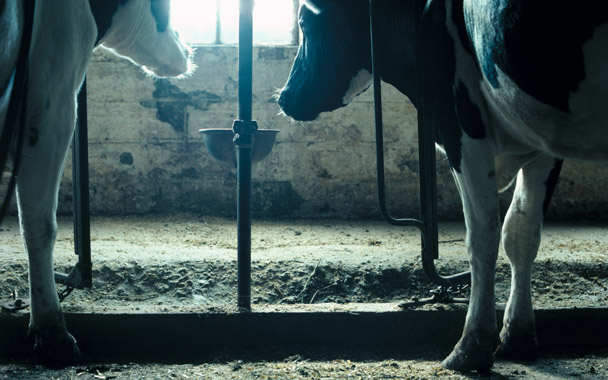After a decade of rapid expansion, with growth rates between 20 to 25 percent a year, organic dairy farmers are now being splashed in the face with cold milk.
As I mentioned last week, prices paid to farmers have been cut. Farmers who are still in the tedious, expensive three-year process of converting from conventional to organic are being told, “Never mind.” And the leaders of several large companies are scrambling to adjust to the kinds of market dynamics that many organic farmers thought they had left behind when they converted from conventional farming to organic.
“Most organic farmers came out of conventional farming,” says Theresa Marquez, a spokeswoman for Organic Valley, which describes itself as an “un-corporation” that promotes “alternative business models.” She continues, “They have a humongous chip on their shoulder. I call it the ‘kicked dog syndrome’ because they have been kicked around by conventional agriculture. I don’t blame them, but we are trying to redefine the relationship between farmers and management. That may be one of the most difficult problems we face.”
Ed Maltby, executive director of the Northeast Organic Dairy Producers Alliance, says, “We have farmers who are losing their herds. It’s especially hard on young farmers, because they tend to have the most debt.” He adds, “We knew this was coming. We tried to talk to the companies, but didn’t get a response.”
Marquez’s reaction is that Organic Valley is a farmer-owned co-operative. “We know there are problems out there. We have around one thousand, three hundred and fifty farmers in our cooperative. And sixty farmers sit on our Dairy Executive Committee. We don’t act unless we have a pretty good consensus, and our decision to lower the price to farmers was made because the Executive Committee decided it was a straightforward, conservative market adjustment. We pay hourly workers very well, and we pay much less on the high end. The CEO does have a bonus, but this year he did not get his full bonus.”
Maltby suggests that the marketing companies won’t be in a position to grow after the recession if they devalue farmers and the organic product now. “When consumers buy organic, they believe that they are buying a healthy product, but they also believe they are supporting family farms,” he explains, and offers an alternative response to the recession. “We need supply control and coordination. Maybe quotas like they use in Europe.” Maltby also suggests that the whole organic dairy industry should explore “on-farm” uses of surplus milk. “Instead of trucking it around, the milk could be used to feed calves and hogs, or it could be mixed into compost to create fertilizer.”
The ground is shifting. There is fear, frustration, and the first signs of anger. And dairy farmers are only weeks away from the “spring flush,” a time when organic dairy cows move back onto grass and the industry is confronted with—you guessed it—a big surplus.




 Pinterest
Pinterest


